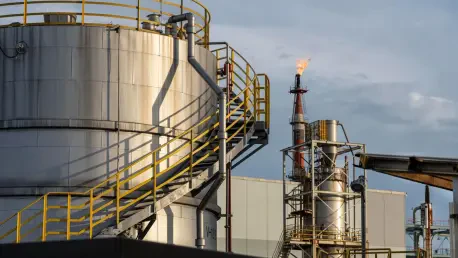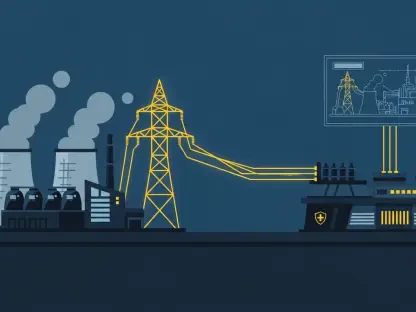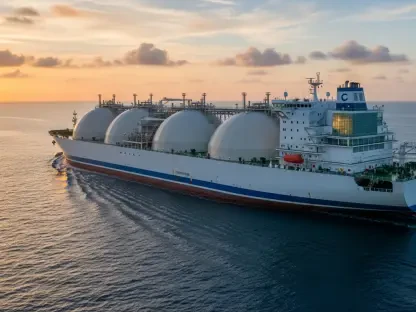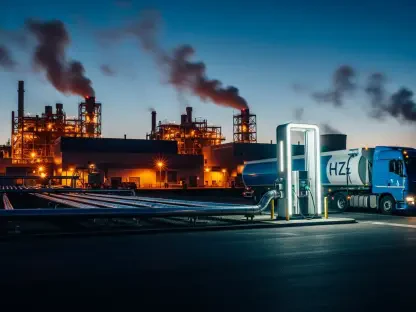In the wake of recent developments affecting the UK’s energy landscape, Christopher Hailstone offers his perspectives on the insolvency of Lindsey oil refinery. With vast experience in energy management and renewable energy, he delves into the implications for energy security, the reasons behind Lindsey’s downfall, and what this means for the industry.
Can you explain the implications of Lindsey oil refinery’s insolvency for the UK’s energy supply and security?
The insolvency of Lindsey oil refinery certainly poses significant challenges for the UK’s energy supply and security. As one of the few remaining oil refineries in the country, its closure increases dependency on imported fuels, potentially heightening vulnerability to global market fluctuations and supply disruptions. Losing Lindsey could streamline short-term supply chains but risks putting a strain on energy reserves if alternative sources cannot be promptly secured.
What factors contributed to Lindsey’s financial decline and eventual insolvency?
Lindsey’s financial decline can be attributed to multiple factors, including outdated infrastructural capabilities, inability to maintain profitability post-acquisition, and increasing operational costs. The refinery suffered from a lack of investment in modernization and efficiency improvements, which stifled its competitiveness in an evolving energy market. Additionally, broader economic pressures and competitive challenges from more advanced facilities exacerbated its decline.
Could you provide more details on the government’s attempts to address the financial issues at Lindsey?
The government approached Lindsey’s financial woes with efforts to understand the financial shortfall that needed bridging, which unfortunately went unmet due to the company’s inability to provide necessary details. Despite this gap, plans were in place to potentially assist had more transparent data been available.
How does Lindsey’s closure impact the UK’s reliance on fuel imports?
Lindsey’s closure significantly increases the UK’s dependence on fuel imports. This greater reliance places the UK in a precarious position, exposing it to external market dynamics. It necessitates swift adaptation and strategic planning to secure stable fuel sources, manage potential cost increases, and mitigate risks related to foreign supply disruptions.
Could you elaborate on the call for an investigation into the conduct of Prax’s directors?
The call for an investigation seeks to scrutinize the decision-making process leading to insolvency, aiming for accountability and transparency in the face of substantial financial losses and operational missteps. Concerns raised include potential neglect of fiduciary duties and mismanagement of resources that could have exacerbated Lindsey’s decline.
Since purchasing Lindsey in 2021, what actions did Prax undertake to try and turn a profit at the refinery?
Prax attempted various strategies to achieve profitability, such as operational adjustments and cost-cutting measures. However, they faced significant challenges in retrofitting and modernizing an outdated facility amidst rising competition and economic pressures. These financial difficulties were reflected in their overall performance, ultimately affecting Lindsey’s operations adversely.
Can you provide insight into the potential future for Lindsey employees facing job uncertainties?
The situation leaves Lindsey employees in a difficult position with significant job uncertainties. Efforts are underway to engage with trade unions and industry bodies to support the workforce. This includes potential retraining programs and seeking out opportunities to secure employment elsewhere within the industry.
What options are being considered by Teneo regarding Prax’s assets outside the insolvency process?
Teneo is considering various options for Prax’s assets, which include potential sales of their upstream business and retail operations. These measures aim to salvage value from viable segments outside the insolvency process, potentially stabilizing financial standings in other units of the company.
How has Prax’s upstream business, particularly the Lancaster oilfield, been performing despite Lindsey’s issues?
The Lancaster oilfield, part of Prax’s upstream business, has continued to perform with modest production figures, thus not substantially impacting the company in a manner similar to Lindsey. Its ongoing production phase indicates relative stability amidst the broader challenges faced by the group.
What broader impacts might Lindsey’s insolvency have on Prax’s other operations in the UK and Europe?
Lindsey’s insolvency could ripple through Prax’s broader operations as the financial and reputational strain necessitates a reassessment of business strategies across their UK and European holdings. It might compel a shift towards more sustainable practices or divestment from underperforming assets to ensure overall corporate resilience.
How has Prax’s acquisition history, including the purchase from TotalEnergies, influenced their current financial predicament?
Prax’s acquisition history, particularly the strategic yet challenging purchase of Lindsey, illustrates a bold yet risky expansion effort that, unfortunately, did not yield anticipated returns. The financial strain from this acquisition has pressured the company to re-evaluate its portfolio management and overall expenditure to navigate current financial predicaments effectively.
Do you have any advice for our readers?
In an ever-evolving energy landscape, it’s crucial to prioritize adaptability and innovation. Stakeholders must continuously assess market dynamics and embrace technological advancements to ensure resiliency and sustainability in the face of future industry challenges.









